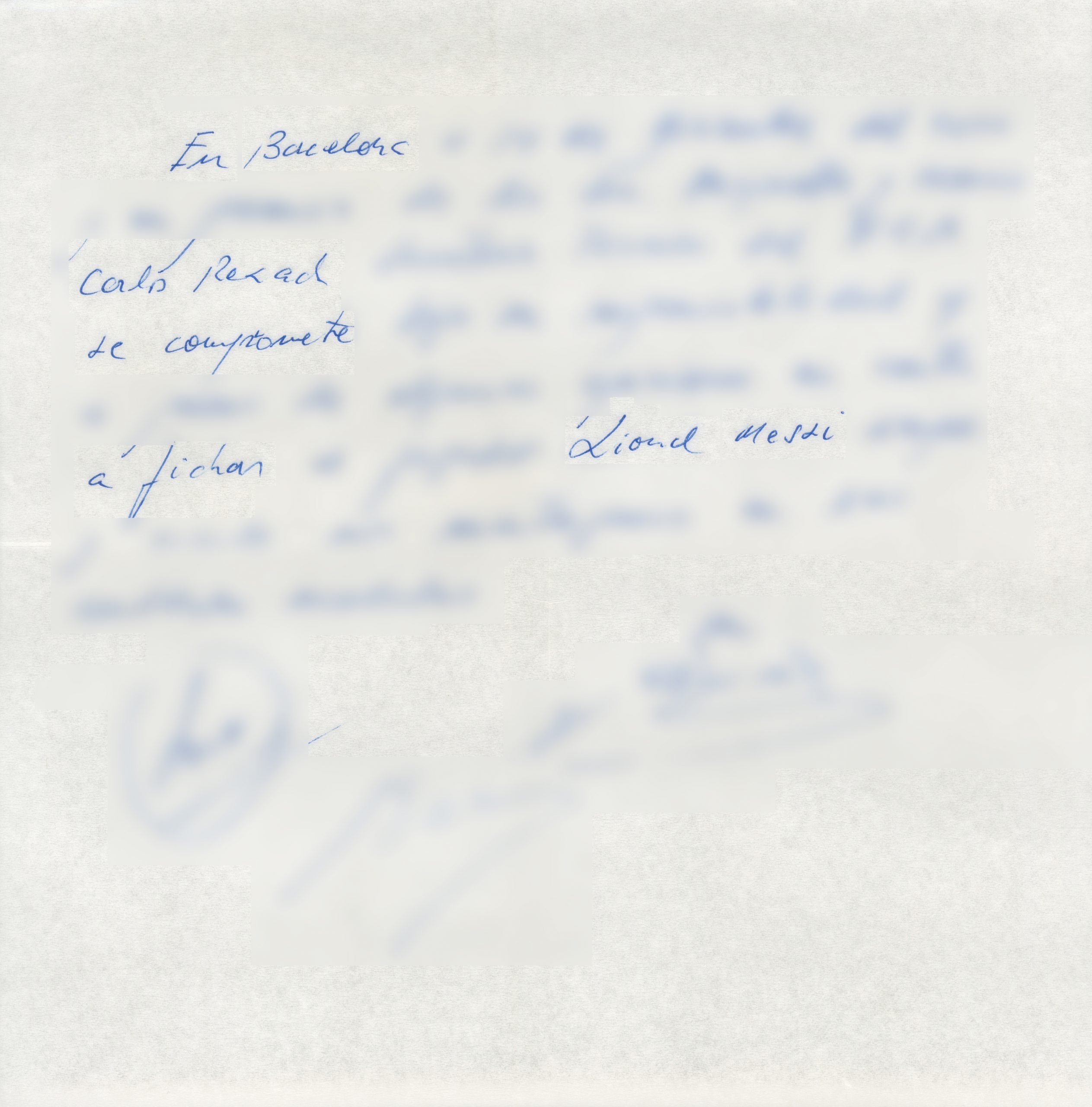
A paper napkin on which Lionel Messi’s first contract with FC Barcelona was penned is set to sell in a Bonhams online auction in March, with a starting price at £300,000 ($379,000).
The napkin signifies a pivotal moment that altered the course of football history, marking Messi’s meteoric rise from humble beginnings to global acclaim. The contract written on the napkin translates to: “In Barcelona, on 14 December 2000 and the presence of Messrs Minguella [the transfer advisor to the club] and Horacio [the Argentine agent who discovered Messi], Carles Rexach, FC Barcelona’s sporting director, hereby agrees, under his responsibility and regardless of any dissenting opinions, to sign the player Lionel Messi, provided that we keep to the amounts agreed upon.”
In the world of auctions, where even the most unexpected items are sold for mind-boggling sums, a napkin with an estimated value of £300,000 is unsurprising, particularly within the realm of sports memorabilia. The value placed on items associated with revered athletes and significant sporting moments often defies expectations. For example, the shirt worn by Diego Maradona when he scored the infamous “Hand of God” goal during Argentina’s win against England in the 1986 quarter finals World Cup sold for a record £7.1 million in an auction in 2022, making it the most valuable football item ever sold.
Messi has been the recipient of numerous Ballon d’Or awards, yet he is no stranger to scrutiny. From tax evasion allegations to clashes with club management, his journey to football stardom has had its share of challenges and controversies. As this napkin goes up for auction at Bonhams, its significance serves as a tangible reminder of the player’s extraordinary impact on the world of football.
Other comparative objects with links to celebrities include a handkerchief with an embroidered “M” owned by Marilyn Monroe, which sold for $12,650 at Christie’s in 1999. In 2020 another handkerchief, marked with Monroe’s red lipstick stains, sold for $300,000, its funds serving as a lifeline for a struggling Parisian theatre on the brink of financial ruin.